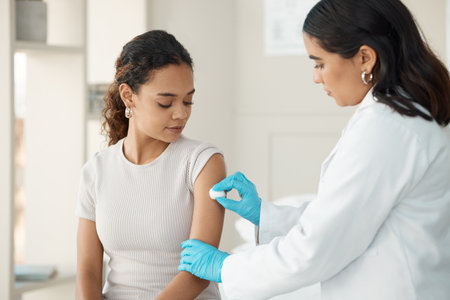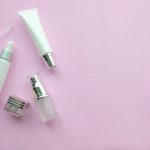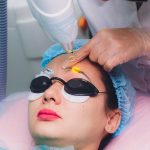1. Over-Washing or Under-Washing Your Face
Finding the right cleansing routine is crucial for keeping acne at bay. Washing your face too often can strip away natural oils, leading to dryness and increased oil production—both of which can trigger more breakouts. On the other hand, not washing enough allows dirt, oil, and dead skin cells to build up, clogging your pores and causing acne.
How Often Should You Wash Your Face?
The key is balance. For most people, washing twice a day—once in the morning and once at night—is ideal. However, if you have extremely dry or sensitive skin, you might benefit from cleansing just once a day at night.
| Skin Type | Recommended Cleansing Frequency |
|---|---|
| Oily Skin | Twice a day (morning & night) |
| Dry/Sensitive Skin | Once at night, or twice with a gentle cleanser |
| Combination Skin | Twice a day, adjusting based on how your skin feels |
Tips for Effective Cleansing
Avoid Harsh Cleansers
Cleansers with strong chemicals or alcohol can irritate your skin. Opt for gentle, fragrance-free cleansers designed for your skin type.
Lukewarm Water is Best
Hot water can dry out your skin and cause irritation, while cold water may not effectively remove dirt and oil. Stick to lukewarm water for the best results.
PAT Your Face Dry
Avoid rubbing your skin with a towel, as this can cause irritation and inflammation. Instead, gently pat your face dry with a clean towel.
Mild Exfoliation Can Help
If you struggle with clogged pores, incorporating a mild exfoliant (like salicylic acid) a few times a week can help keep your skin clear without over-stripping it.
2. Using Harsh or Wrong Skincare Products
Many people with acne-prone skin unknowingly make their breakouts worse by using harsh skincare products. While it may seem like strong exfoliants and alcohol-based toners can help clear acne, they often do more harm than good.
Why Harsh Products Can Make Acne Worse
Exfoliating too aggressively or using products with high alcohol content can strip your skin of its natural oils, leading to dryness and irritation. When your skin becomes overly dry, it produces even more oil to compensate, which can clog pores and trigger breakouts.
Common Harsh Ingredients to Avoid
| Ingredient | Why It’s Harmful |
|---|---|
| Alcohol (denatured, SD alcohol, isopropyl alcohol) | Dries out the skin, leading to irritation and increased oil production. |
| Sulfates (Sodium Lauryl Sulfate, Sodium Laureth Sulfate) | Can be too harsh and stripping, causing inflammation. |
| Physical exfoliants (rough scrubs with walnut shells, apricot kernels) | Can cause micro-tears in the skin, making acne worse. |
| Fragrances & Essential Oils | May trigger irritation and allergic reactions in sensitive skin. |
The Right Skincare Approach for Acne-Prone Skin
If you have acne-prone skin, it’s important to choose gentle yet effective skincare products that support a healthy skin barrier. Look for ingredients that soothe inflammation while keeping your pores clear.
The Best Ingredients for Clearer Skin
- Salicylic Acid: A beta hydroxy acid (BHA) that helps unclog pores and reduce breakouts.
- Benzoyl Peroxide: Kills acne-causing bacteria and reduces inflammation.
- Ceramides: Strengthen the skin barrier and prevent excessive dryness.
- Aloe Vera: Soothes irritation and calms redness.
- Niacinamide: Reduces inflammation and regulates oil production.
- Hyaluronic Acid: Provides hydration without clogging pores.
Tips for Choosing the Right Products
- Avoid products labeled as “harsh” or “deep-cleansing” if they contain drying ingredients.
- Select non-comedogenic formulas designed specifically for acne-prone skin.
- If using an exfoliant, opt for a gentle chemical exfoliant like salicylic acid rather than a physical scrub.
- Mild, fragrance-free cleansers are best for preventing irritation.
- If unsure about a product, patch test on a small area before applying it to your entire face.
The right skincare products can make a huge difference in managing acne. By avoiding harsh ingredients and choosing gentle yet effective formulations, you’ll help your skin stay balanced and breakout-free.
![]()
3. Popping Pimples the Wrong Way
Popping pimples incorrectly can push bacteria deeper into the skin, leading to scarring and prolonged breakouts. While it might be tempting to squeeze a zit, doing it the wrong way can cause more harm than good. Instead of making things worse, lets explore safer ways to handle blemishes.
Why You Should Avoid Picking at Your Skin
When you pop a pimple with your fingers or use unsterilized tools, you risk spreading bacteria, causing inflammation, and even leading to permanent scarring. Here’s what happens when you squeeze a pimple incorrectly:
| What Happens When You Pop a Pimple Incorrectly | Potential Consequences |
|---|---|
| Bacteria gets pushed deeper into the skin | Leads to bigger breakouts and longer healing time |
| The skin tears from excessive pressure | Increases the risk of permanent scarring |
| Dirt and oil spread to surrounding areas | Makes acne worse in other parts of your face |
The Right Way to Deal with Pimples
If you must handle a pimple, its important to do it safely. Follow these steps to minimize damage:
#1 Let It Heal Naturally
The best option is always to leave the blemish alone and let it heal on its own. Using spot treatments with ingredients like benzoyl peroxide or salicylic acid can speed up recovery.
#2 Use a Warm Compress
If you have a painful pimple, applying a warm compress for 5-10 minutes can help reduce swelling and bring the pus to the surface naturally.
#3 Only Extract When Necessary (and Safely)
If a whitehead is fully formed and ready to drain, follow these steps:
- Wash your hands: Always start with clean hands to prevent introducing more bacteria.
- Sterilize a needle: If necessary, use a sterilized needle to gently prick the surface.
- Use cotton swabs: Instead of fingers, apply gentle pressure with two cotton swabs on either side.
- Avoid forcing it: If nothing comes out easily, stop immediately.
- Cleansing after extraction: Apply an antibacterial toner or spot treatment to prevent infection.
The Bottom Line
Popping pimples the wrong way can do more harm than good. Instead of picking at your skin, try safer alternatives like spot treatments and warm compresses. When in doubt, consult a dermatologist for professional advice on managing acne without causing unnecessary damage.
4. Ignoring the Role of Diet and Lifestyle
Your diet and daily habits play a big role in your skin health. While skincare products can help manage acne, what you eat and how you live can either support or sabotage your efforts. Let’s break down some common food triggers and lifestyle factors that may be affecting your skin.
Foods That Can Trigger Acne
Certain foods can contribute to breakouts by increasing inflammation, affecting hormone levels, or triggering excess oil production. Here are some common culprits:
| Food Type | How It Affects Your Skin |
|---|---|
| Dairy Products | May increase insulin levels and hormones linked to acne. |
| Sugary Foods & Drinks | Can cause blood sugar spikes, leading to increased oil production. |
| Processed Foods | Tend to be high in unhealthy fats and additives that promote inflammation. |
| Greasy & Fast Food | Poor-quality oils can trigger breakouts and worsen skin conditions. |
| Whey Protein Supplements | Might boost certain hormones that contribute to acne formation. |
Lifestyle Habits That May Worsen Acne
Apart from diet, everyday habits can also impact your skin. Here are a few behaviors that might be making things worse:
- Lack of Sleep: Poor sleep can lead to increased stress hormones, which may trigger breakouts.
- High Stress Levels: Stress can cause hormonal imbalances that worsen acne over time.
- Poor Hygiene Practices: Not washing pillowcases, phone screens, or makeup brushes regularly can transfer bacteria onto your skin.
- Tight or Dirty Face Masks: Wearing a mask for long periods without cleaning it properly can trap bacteria and irritate the skin (often referred to as “maskne”).
- Lack of Hydration: Dehydration can make your skin overproduce oil to compensate for dryness, leading to clogged pores.
The Best Diet and Lifestyle Choices for Clear Skin
If you want healthier skin, try incorporating these positive changes into your routine:
- EAT MORE WHOLE FOODS: Focus on fresh fruits, vegetables, lean proteins, and healthy fats like avocado and nuts.
- DINK PLENTY OF WATER: Staying hydrated helps flush out toxins and keeps your skin balanced.
- PRACTICE STRESS MANAGEMENT: Activities like meditation, exercise, or journaling can help reduce stress-related breakouts.
- SLEEP WELL: Aim for 7-9 hours of quality sleep each night to support skin regeneration.
- CLEAN YOUR BELONGINGS: Regularly wash anything that touches your face, including pillowcases, masks, and phones.
Your skincare routine is important, but don’t underestimate the impact of what you eat and how you live. Small changes in diet and lifestyle can make a big difference in achieving clearer skin!
5. Skipping Sunscreen or Using the Wrong One
Sun exposure can make acne scars and hyperpigmentation worse, but choosing the wrong sunscreen can lead to clogged pores and breakouts. If you have acne-prone skin, finding the right SPF is crucial to protecting your skin without causing more problems.
Why Sunscreen Matters for Acne-Prone Skin
Many people with acne skip sunscreen because they fear it will make their skin oily or cause breakouts. However, UV rays can darken acne scars and trigger inflammation, making your skin more prone to irritation and redness.
How to Choose the Right Sunscreen
The key is selecting a sunscreen that protects your skin without clogging pores. Look for products labeled “non-comedogenic” and “oil-free.” Below is a quick guide to help you choose the best sunscreen for acne-prone skin:
| Sunscreen Type | Best For | Avoid If… |
|---|---|---|
| Mineral Sunscreen (Zinc Oxide, Titanium Dioxide) | Sensitive, acne-prone skin; provides broad-spectrum protection | You prefer lightweight formulas (some mineral sunscreens can feel thick) |
| Chemical Sunscreen (Avobenzone, Oxybenzone, Octinoxate) | Lightweight feel; absorbs quickly into the skin | You have sensitive skin (can sometimes cause irritation) |
| Sunscreen with Mattifying or Oil-Control Features | Oily or combination skin; reduces shine throughout the day | Your skin is very dry (may cause excessive dryness) |
| Tinted Sunscreen | Evens out skin tone while providing sun protection | You need higher SPF protection (some tinted options may have lower SPF) |
Tips for Applying Sunscreen Without Breaking Out
- Avoid thick, greasy formulas: Stick to lightweight gels or fluid sunscreens.
- Select fragrance-free options: Fragrances can irritate sensitive, acne-prone skin.
- Add sunscreen as the last step of your skincare routine: Apply it after your moisturizer but before makeup.
- Reapply every 2 hours: Especially if youre outside or sweating.
- Cleansing properly at night: Wash off sunscreen thoroughly to prevent buildup that could clog pores.
The right sunscreen won’t just protect your skin from UV damage—it will also help prevent post-acne marks from getting worse. Choose wisely, and your skin will thank you!


